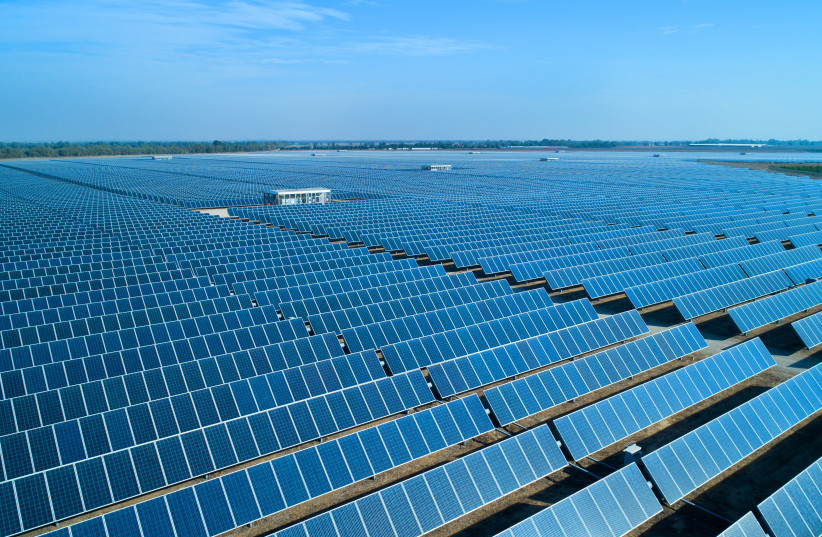Traditional energy sources, like power plants and natural gas, alongside conventional transmission systems, render countries vulnerable.
By ELI SHARVIT. OCTOBER 10, 2024

In the wake of the October 7 events, we are witnessing the beginning of a home-based energy storage revolution, allowing every household to become an independent energy island. Energy security is becoming increasingly critical in today’s world, where geopolitical crises and extreme weather events disrupt the global energy agenda.
Traditional energy sources, like power plants and natural gas, alongside conventional transmission systems, render countries vulnerable. Therefore, the decentralization of energy sources is vital. Green energies, especially hydrogen, are emerging as key solutions to ensure a more stable future.
The primary advantage of green hydrogen lies in its status as a completely natural and timeless energy source, leaving no pollution or environmental harm in its wake. Beyond its use as fuel, technological advancements are enabling hydrogen-based storage, opening up new possibilities for energy stability.
Israel’s greatest asset in renewable energy – solar power – can only be harnessed during daylight hours. To ensure continuous energy security, this energy must be stored for use around the clock, which necessitates the integration of storage systems into production infrastructures. While today, most storage is achieved through lithium batteries, the future belongs to hydrogen-based storage systems.

Decentralized energy infrastructure
In a country like Israel, which must be prepared for widespread disruptions during conflicts, both on the front lines and in civilian areas, the key concept is decentralization. The current dependence on centralized power stations, a few natural gas rigs, and critical transmission nodes makes the country vulnerable. A scenario in which damage to one of these elements could paralyze entire regions for extended periods demonstrates the irreplaceable value of decentralization. This would create a robust electrical grid that is less susceptible to large-scale disruptions. Green energies such as solar power and hydrogen storage enable true decentralization of energy sources.
Following the events of October 7, we are already seeing the beginnings of a shift toward home energy storage. This process not only guarantees individual energy security but also provides significant civilian resilience. Imagine the difference between large swaths of land engulfed in darkness and a collection of energy-resilient households.
The new model that Israel must adopt is home-based energy security. A home’s electrical system should be viewed similarly to a reinforced shelter that protects against physical threats. Just as a shelter provides safety during attacks, a home energy storage system protects against power outages and dependence on national systems. This approach is relevant not only to private homes but also to essential systems in apartment buildings, community centers, and neighborhood resilience hubs.
To enable this revolution, Israel must remove regulatory barriers and advance supportive legislation. The rest of the world already understands that the transition to green energy is not just an environmental need but an essential part of national security. For instance, Italy has introduced significant tax breaks for those installing solar systems, while the European Union offers grants for purchasing solar systems, with additional grants for systems with integrated storage capabilities. In California, where frequent blackouts are a challenge, residents are incentivized to adopt decentralized systems, reducing dependence on the national grid and minimizing the urgency of restoring it after a failure.
Looking toward the next decade, it is clear that hydrogen will play a central role in the energy market. Hydrogen-powered technologies are already being used in heavy transportation, including ships, trains, and buses. However, the true potential lies in large-scale hydrogen storage as a reliable and efficient energy source, particularly during periods when solar production is reduced.
If Israel is wise enough to adopt new technologies and invest in infrastructure for energy storage and hydrogen utilization, it will ensure energy security for its citizens in both routine and emergency situations, while also achieving its ambitious renewable energy transition goals.
The writer is chairman of QD-SOL.
